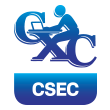The Caribbean Examinations Council started using electronic marking, also known as e-marking, during the May-June 2013 marking exercise. E-marking facilitates the assignment of electronic scripts to examiners and the marking of these scripts in an online environment instead of relocating to a physical location. The process started with two subjects at the Caribbean Secondary Examination Certificate (CSEC) level. Since then, the process has not only seen an increase in the number of subjects and paper components being e-marked but has also expanded to the Caribbean Advanced Proficiency Examinations (CAPE) as well as to the School Based Assessments (SBA).
|
External Assessments |
Internal Assessments |
|||
| Subjects | Papers | Subjects | E-SBA Papers | |
| CSEC May-June 2013 |
2 |
2 |
||
| CSEC May-June 2014 |
7 |
11 |
||
| CSEC January 2015 |
13 |
22 |
||
| CSEC May-June 2015 |
18 |
30 |
||
| CAPE May-June 2015 |
11 |
37 |
||
| CSEC January 2016 |
13 |
22 |
||
| CSEC May-June 2016 |
25 |
37 |
9 |
9 |
| CAPE May-June 2016 |
27 |
85 |
13 |
23 |
Figure 1 provides the number of subjects for CSEC and CAPE, 2013 – 2016

Figure 2 provides the number of paper components for CSEC and CAPE, 2013 – 2016

Figure 3 provides the number of school-based assessment components for CSEC and CAPE, 2016
















cannot see the list of subjects for e-marking 2016
Hello,
What are the requirement to apply for the post of an e-marker?
Also, subjects cannot be viewed; what are the subjects to be marked?
I am interested in marking csec and cape biology papers this year 2016. I am not seeing where I have to apply.
Good day this is a csec candidate will the e-marking system is able to mark any answer similar to what the computer store as the answer? Will the candidate still be awared with the mark?